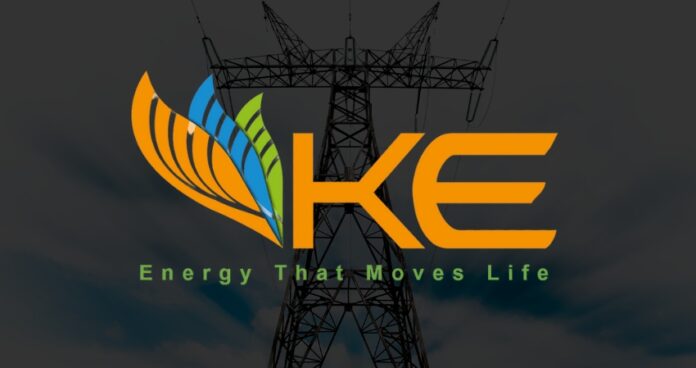The Special Investment Facilitation Council (SIFC) — Pakistan’s paramount economic entity — has convened a formidable committee comprising the Ministers for Energy (chair), Privatisation, Law & Justice. The objective? To untangle the imbroglio unfolding in K-Electric’s board room regarding its ownership, and to determine the appointment of members on the vacant seats in K-Electric’s board of directors.
The committee is purported to have been constituted in response to a plea by Saudi and Kuwaiti investors who expressed apprehensions and solicited for intervention amid assertions made by Infrastructure and Growth Capital Fund (IGCF) about the proprietorship of K-Electric.
Reportedly, it was in the inaugural week of September that the law ministry issued directives to the Privatisation Division to exercise scrupulous vigilance on KES Power (KESP) and K-Electric’s case pending in the Sindh High Court owing to the salience of the matter.
The ministry had counselled the legal representative of Privatisation Division to pursue the perpetuation of the stay with respect to alterations to K-Electric’s board of directors in the proceeding currently in progress in Sindh High Court between K-Electric shareholders over the validity of the sale of shares to Sage Ventures Limited by the liquidators of Abraaj Investment Management who controlled the Infrastructure and Growth Capital Fund (IGCF).
“These meetings regarding the matter, to my understanding, occur with considerable regularity. The participants have resoundingly proclaimed that the resolution of the K-Electric conundrum and the assurance of contentment among Saudi and Kuwaiti investors rank highly among the government’s list of priorities,” states Shan Ashary, Chief Investment Officer of Al-Jomaih and former Chairman of K-Electric.
“IGCF is well aware that KESP’s minority shareholders do not want our increased representation on the K-Electric Board as it will expose the complete mismanagement and negligence that has plagued at K-Electric for the last several years,” states Shaheryar Chishty, Director at the IGCF and CEO of AsiaPak Investments.
“The result has been record breaking losses at K-Electric and horrible supply and awful customer service. The people of Karachi deserve a better managed utility that delivers and wins for them. Much like the people of Pakistan who deserve a cricket team that wins,” Chishty adds.
So, what exactly does all this mean?
What’s going on?
K-Electric, formerly known as Karachi Electric Supply Company/Karachi Electric Supply Corporation Limited, is a publicly listed entity, established in Pakistan in 1913 under the appellation KESC. Post its privatisation in 2005, K-Electric has emerged as the solitary vertically integrated utility in Pakistan, entrusted with the responsibility of supplying electricity within an expansive 6,500 km square territory that envelops Karachi and its contiguous areas. The preponderance of the company (66.4%) is listed on the PSX and held by KESP, a consortium of investors that encompasses Aljomaih Power of Saudi Arabia, Denham Investments of Kuwait, and the IGCF. The Government of Pakistan also retains a minority stake (24.36%) in the company.
Within the framework of KESP, IGCF — recently procured by Shaheryar Chishti’s AsiaPak Investments — vaunts a substantial 53.8% stake in KES Power. The residual 46.2% is apportioned between Aljomaih and Denham Investment. The history of K-Electric, Shaheryar Chishti, and AsiaPak have been comprehensively covered by Profit.
Read more: Who is Shaheryar Chishty and what does he want with K-Electric?
What’s germane to us is that AsiaPak has found itself embroiled in a dispute with Al-Jomaih and Denham over the decision to populate three vacant seats on K-Electric’s board of directors. The contention has escalated to such a degree that cases have been instituted in both the Sindh High Court and the Grand Court of the Cayman Islands, with the latter bearing particular relevance to us. This too has been meticulously detailed previously by Profit.
Read more: Understanding K-Electric’s Cayman legal battle
The crux of the matter now is that the Cayman Grand Court is teetering on the brink of conducting a final hearing on the issue where it will pronounce its verdict. Per the Court’s last decree, the minority shareholders will not only be obliged to rescind proceedings in Karachi and be prohibited from initiating any analogous proceedings in any court other than those in the Cayman Islands or English courts, but they will also have to indemnify AsiaPak for the proceedings.
However, this obligation only materialises once the final hearing has transpired. They are not mandated to do so prior to this juncture, which is where we currently find ourselves. If both parties were to arrive at an agreement before this eventuality, then the Cayman Grand Court would harbour no objections whatsoever.
Letting bygones be bygones, or not
“It’s always within the parties’ prerogative to reach an accord, whether before, during or after proceedings,” explains Salman Ijaz, Partner at KhanIjaz. He cites Reko Diq as an exemplar of how such situations are not an anomaly.
“In Tethyan Copper Company vs Federation of Pakistan, even after the award (which was an arbitration before the International Centre for Settlement of Investment Disputes rather than court proceedings), there was protracted litigation around enforcement. This was because you needed to locate US$6 billion worth of assets, but ultimately, the parties arrived at a settlement,” Ijaz expounds.
Karkey Karadeniz Elektrik Uretim vs Islamic Republic of Pakistan is another noteworthy instance where parties arrived at a settlement.
“Courts prefer parties to arrive at a settlement because it results in less expenditure on court proceedings which are financially burdensome almost everywhere else in the world and also consume valuable court time,” Ijaz further adds.
This brings us up to speed with our current standing. The SIFC will endeavour to mediate before the Cayman Grand Court pronounces its verdict. Whether or not the parties can find common ground remains an entirely different question.




